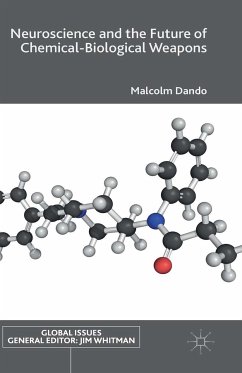
Neuroscience and the Future of Chemical-Biological Weapons (eBook, PDF)
Versandkostenfrei!
Sofort per Download lieferbar
44,95 €
inkl. MwSt.
Weitere Ausgaben:

PAYBACK Punkte
22 °P sammeln!
During the last century, advances in the life sciences were used in the development of biological and chemical weapons in large-scale state offensive programmes, many of which targeted the nervous system. This study questions whether the development of novel biological and chemical neuroweapons can be prevented as neuroscience progresses.
Dieser Download kann aus rechtlichen Gründen nur mit Rechnungsadresse in A, B, BG, CY, CZ, D, DK, EW, E, FIN, F, GR, HR, H, IRL, I, LT, L, LR, M, NL, PL, P, R, S, SLO, SK ausgeliefert werden.


